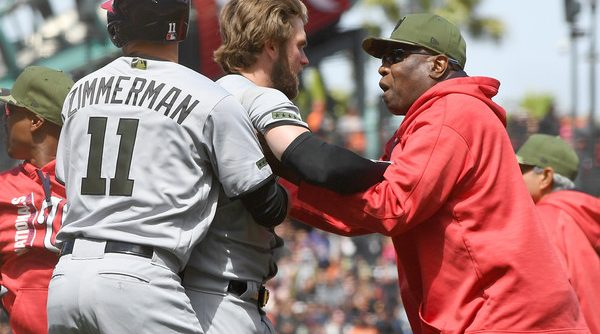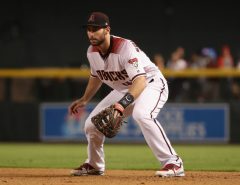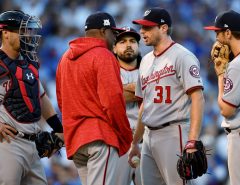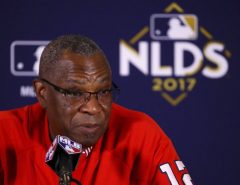If you’re reading the pages of this website, it’s hard to believe that you missed the fracas that broke out in the 8th inning of the Nationals 3-0 win against the San Francisco Giants on Memorial Day. Well today, the news broke that Hunter Strickland was suspended six games for his beaning of Bryce Harper, who himself got four games from his helmet chucking charge of the mound.
It also seems a safe assumption that most of the readers of this website believe that the majority of the blame for this incident sits on the shoulders of Strickland, who, after three years of chilling his revenge, served a frost bitten bite up to Harper without recent provocation (if he had any at all).
I held trepidation that MLB might give Harper a harsher sentence than Strickland because many players are plunked with intent during the season, and the pitchers hurling those rage-laden spheres many times do not get any discipline served upon them. In fact, there is a not-so-small chance that had Harper not charged the mound in this instance that nothing corrective would have been done by the league to Strickland. Harper would have taken his base, and his bruise, and Strickland would have finished out the inning only a baserunner worse for wear.
So when Strickland was given a suspension 50% greater than Harper’s, my initial reaction was to rejoice with a hearty “huzzah!” for justice being done. Then I reconsidered about as quickly. I think most baseball fans are aware that suspensions effect position players and pitchers very different due to their divergent usage patterns. So we have to dig a little deeper to see if this actually will end up harming Strickland more than it does Harper. On Twitter, Buster Olney from ESPN theorized that Strickland would miss up to 3 innings, and Harper up to 20 at bats. I first wanted to see if this was the case, and then which one of these was the larger portion of each of their seasons.
To do this, I went to each player’s Baseball Reference page, and found out how many of each of these stats (I used plate appearances, not at bats, for Harper, and innings pitched for Strickland) both players averaged over a 162 games played season, otherwise the random injuries that have bit both players would color the figures. I then divided those numbers by 162 games played, to find out the average per game for each stat the players would have, and then multiplied those numbers by the number of games suspended to find out the total theoretical time (PAs or IPs) missed. For Harper this comes out to roughly 16.92 PAs missed over four games, and for Strickland it comes down to 2.18 IP over 6 games.
Next I had to see what each of these players were worth in Wins Above Replacement for each of those stats. When you look at Harper this year, he has been worth 2.6 WAR in 203 PAs, or approximately .013 WAR/PA. Strickland has been worth 0.9 WAR in 17.2 IPs or about .052 WAR/IP. So I next multiplied the WAR/per stat for each of these players by how many of each of those stats they are expected to miss for the suspension.
In the end it came down to this: The Nationals, by losing Bryce Harper for 4 games, look to lose about .219 WAR, and the Giants, by losing Hunter Strickland for 6 games, look to lose about .113 WAR. So despite Strickland’s suspension time being 50% longer than Harper’s, the Nationals will lose about twice the on field value out of this dust up
This took me — not a math whiz by any stretch — about half an hour to figure out, which means all the theoretically smart people at the MLB head shed should have been able to figure this out as well, and either didn’t, or didn’t care about the disparity in lost value. Either way, it looks like that despite Strickland being punished more on the surface, the pitcher throwing the missile at the guy waiting for it came out on top again.
Tags: Bryce Harper, Hunter Strickland, Nationals, Nats, Washington Nationals




Leave a Reply